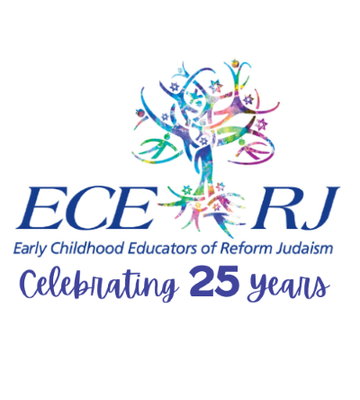Activity
-
ECE-RJ posted an articleWays Schools Can Be the Pillar of Support During Times of Need see more
Ways Schools Can Be the Pillar of Support During Times of Need
For some families in our communities, the pillars of “built in” support of the extended family no longer exist. There are times when the world as they know it unravels or changes—the power is suddenly shutoff, the family suffers a loss, or a new baby joyfully enters this world. During these times, it is critical to have a support system.
We know, as Jewish professionals, that the power of synagogue life can offer this much-needed pillar of support. Our Jewish early childhood centers excel at supporting families and showing them that we appreciate and love their presence and that we are “in this together.”
Here are some examples of how my school supports(ed) families in need, demonstrating how we care for and about each other:
- Meal trains are sent out when a family has a baby. They are filled up instantly, even by folks who may not know each other.
- When a staffer or family goes through a sad or difficult situation, the schools sends a “Sunshine” gift.
- Recently, a number of our families lost power for a few days. Other families instantly mobilized. Within 24 hours, families contributed pizza lunches, planned communal meals, and offered to help with laundry.
- Another family lost their home to a fire. Almost immediately, the school began to receive donations by the carload.
Ellen Lefkowitz
Early Childhood Director
Temple Sinai
Oakland, CA 94609December 2019
- Didi Kerler likes this.
-
ECE-RJ posted an articleFor very young children, it takes a little more thought to put meaning into social action projects. see more
Making Social Action Meaningful for Young Children
Originally published in the Temple Sinia (Denver) Newsletter
This is the time of year many of us meditate on our many blessings and look for ways we can help those who are less fortunate. In Jewish school settings, that often translates to social action projects. As adults, there are a plethora of meaningful ways to share our bounty and give back to the larger community. For very young children, it takes a little more thought to put meaning into such a project.
Very young children construct knowledge of the world around them using their experiences as building blocks. They make sense of things by incorporating the “new” into what they already know. In order for social action projects to be meaningful for young children, they must be relevant to how they see the world, how they make sense of the world, and what is developmentally appropriate for their emotional maturity. By creating experiences for preschool-aged children based on what they already know (routines around meals, bedtime, playtime and basic emotions), we provide opportunities for them to learn empathy, true, beautiful empathy in the purest form.
Collection drives alone tend to be more meaningful for adults than for small children. Materials are typically purchased by adults and disappear in the same fashion. Little ones don’t have the opportunity to learn by doing, and the abstract concept of the recipients is lost on them. A drive can become incredibly meaningful if the children have a role in the collection, preparation, and distribution.
Imagine a little one walking through the supermarket selecting favorite healthy foods to share. Children feel important when they get to choose, and selecting food makes sense to them. Imagine that same little one preparing a yummy soup or filling bags with shampoo, bubble bath, and toothpaste. Young children love cooking, see the adults doing it all the time - doing the things adults do is very special and impactful. They also understand hair washing, baths, and teeth brushing, as part of their everyday experience. Finally, imagine adding a drawing or handwritten note to donation deliveries. Children’s emerging empathy skills blossom when they give of themselves (including their time and their effort) to will make another person feel good.
As we get ready for our first Temple Sinai Preschool mitzvah project, the teachers, families, and I are collaborating on ways to ensure our children are learning not only what a mitzvah is, but how meaningful it can be to their lives. We will choose carefully, so that this first lesson on the joys of giving can inspire a lifetime of giving back to their communities and the world.
Sheila Purdin
Director of Early Childhood Education
Temple Sinai (Denver)
December 2018


